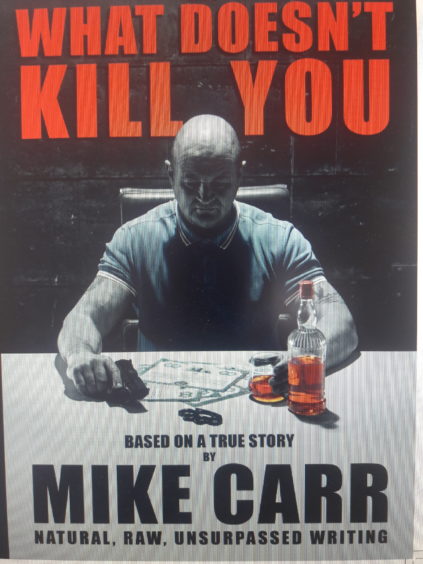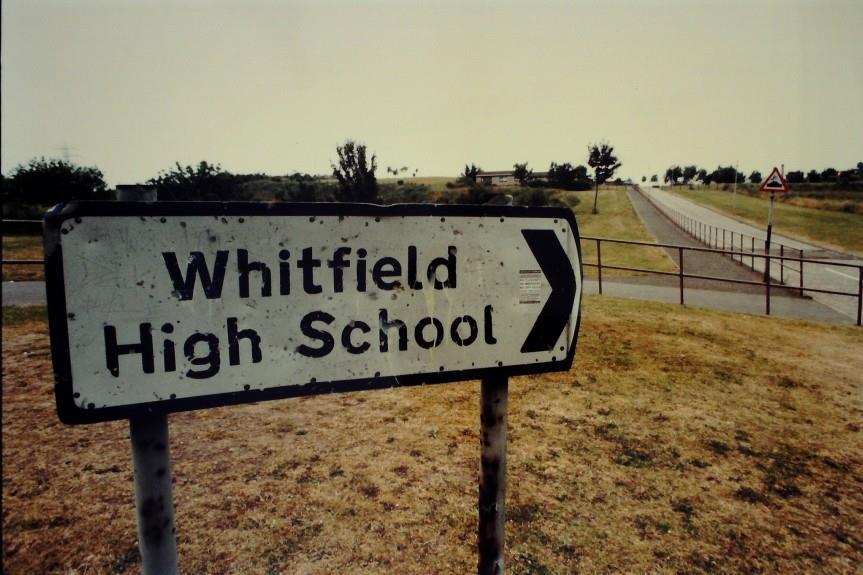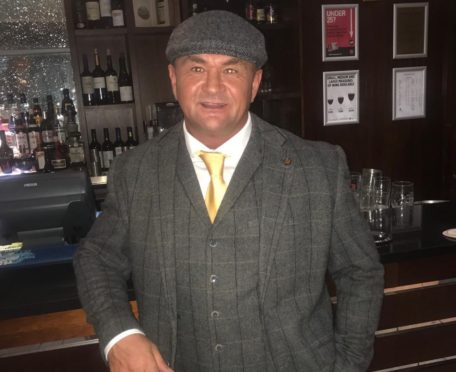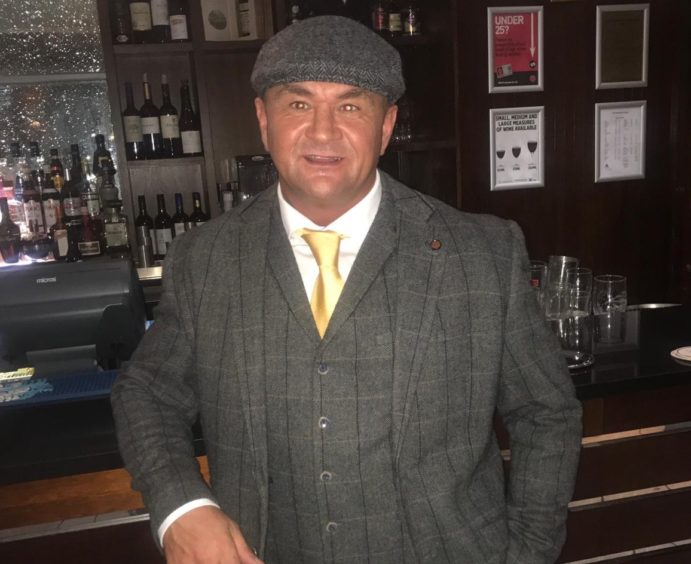Dundonian Mike Carr tells Michael Alexander why he has decided to write a book about his real-life experiences of facing potential death in the criminal underworld.
It is a book that charts his real life experiences of being incarcerated for attempted murder as a teenager in Dundee, to life in the Army, working as a debt collector and bodyguard, and run-ins with the mafia in London, Russia and Turkey.
But as Dundee writer Mike Carr shares his journey through the criminal underworld in his self-published book What Doesn’t Kill You, he insists that he doesn’t want to glamorise crime.
On the contrary – the main message he wants to send to young people is “crime does not pay”!
Growing up on the rough streets of Dundee’s Whitfield housing scheme in the 1970s and 1980s, the book tells how the former Whitfield Primary and Whitfield High School pupil was sent to Rossie Farm reformatory school near Montrose as a 14-year-old, after a teenage prank setting light to an abandoned car almost cost a friend his life.

Joining the Army at 17.5, he served for two years with the Royal Electrical and Mechanical Engineers (REME), before getting a job in a Dundee factory, eventually becoming manager.
However, after a “chance conversation” at a Dundee gym in his mid-20s, the then “ordinary man with an ordinary life” was recruited as a bodyguard in Edinburgh and Glasgow – a move that drew him into the shady and incredibly dangerous world of the mafia where guns, violence and illegal bearer bonds almost cost him his life.
“The reason for writing the book is first of all it’s kind of unbelievable for a guy from Whitfield to have went through all that,” said the 48-year-old who insists he is now “on the straight and narrow” and still lives in Dundee where he works in the gym industry.
“It’s kind of out of the ordinary and that’s what made me feel I want to write this.
“The other reason was to show that you can get involved with stuff that’s not on the right side of the law, but that doesn’t make you a bad person and doesn’t mean to say you can’t come back from that and make things right again.
“If that message goes out to any young kids growing up, I hope it helps them realise the glamorous lifestyle is not all it’s cracked up to be and there are serious consequences to that.”

Whilst life was “hard” growing up in Whitfield, Mike says he had “amazing” parents and a close-knit family around him.
However, describing himself as a “nice guy” who hated bullies, it was an environment where he had to stick up for himself or “risk getting pushed around”.
He learned how to “handle” himself – and it was those early lessons that led him to believe he could survive the challenge of the criminal underworld.
Working on the fringes of a high stakes deal that was about to collapse, the pivotal moment came in Mayfair, London, when he “stepped in” offering to transfer illegal bearer bonds, worth millions of pounds.
In the dealings that followed, the mafia made it clear that if he failed in his efforts, it would cost him gravely, and there are several situations in the book where his life – and certainly his liberty – could have been at stake.
“Growing up in Whitfield – and Whitfield was very different then to what it is now – you learned not so much the physical side to defend yourself but you learned to hold your own,” he said.
“You needed self-belief in yourself whether physically or mentally.
“That led me to believe I could pull this off – although I wasn’t feeling so confident inside when I spoke out.
“My upbringing definitely set me up in a good way for life. I may be used it the wrong way but it has proved to be a good foundation for life as a whole.”
Mike, who has ambitions for the book to be made into a film, says he has changed the names and locations of those involved to protect everyone concerned. However, he says the story is a true depiction of events he experienced.
“For me life is very straight and narrow now and the past has gone,” he said.
Younger self
“For me the moral of the story is as much as you are deep in that there’s still always a way out – a way to pull your life back together and be a good solid citizen.
“If I was speaking to my younger self I definitely wouldn’t do it again. Those times of looking over your shoulder were definitely not worth any kind of money that you could have made by doing that.
“If I went back to my younger self when I was 24/25 years old working in the factory, I would say ‘you’ve got a good opportunity here to grow’ – potentially I could have worked in Germany with the factory – and that’s the route I should have taken.
“I should have progressed through life and got the happiness and lack of worry in life that would have brought.
“What I did is definitely something I wouldn’t recommend and definitely something if I had my chance again, I wouldn’t do.”
*What Doesn’t Kill You by Mike Carr is out now, available at www.whatdoesntkillyou.org or online from Waterstones at £9.99, ISBN No. 978-1-5272-3478-9.

